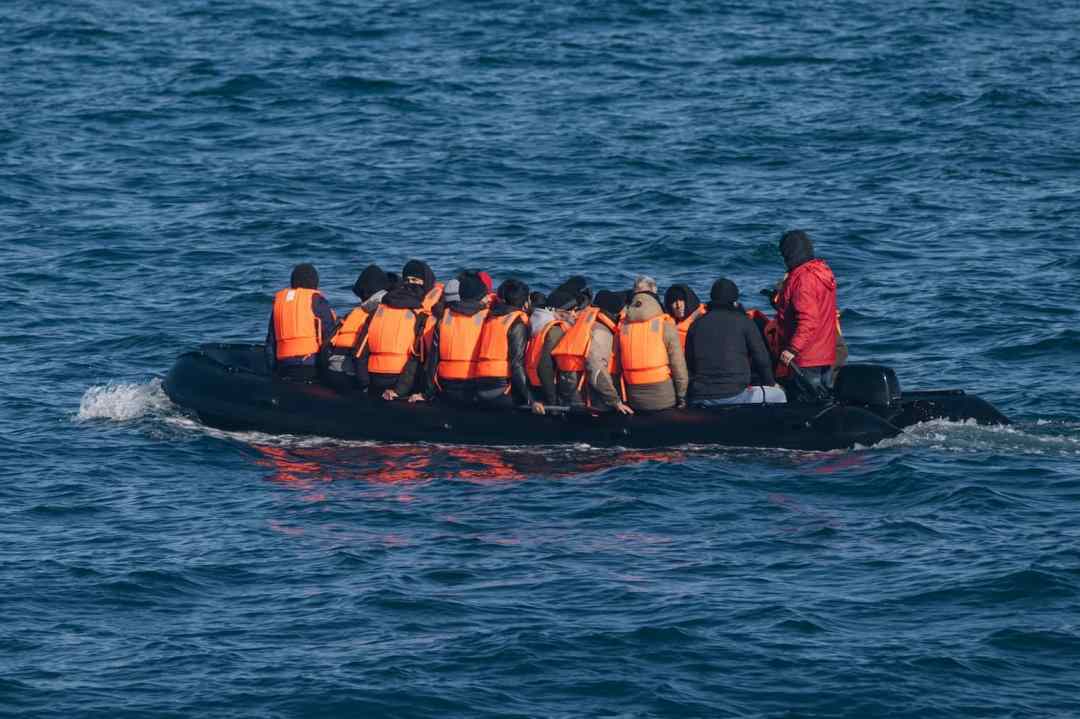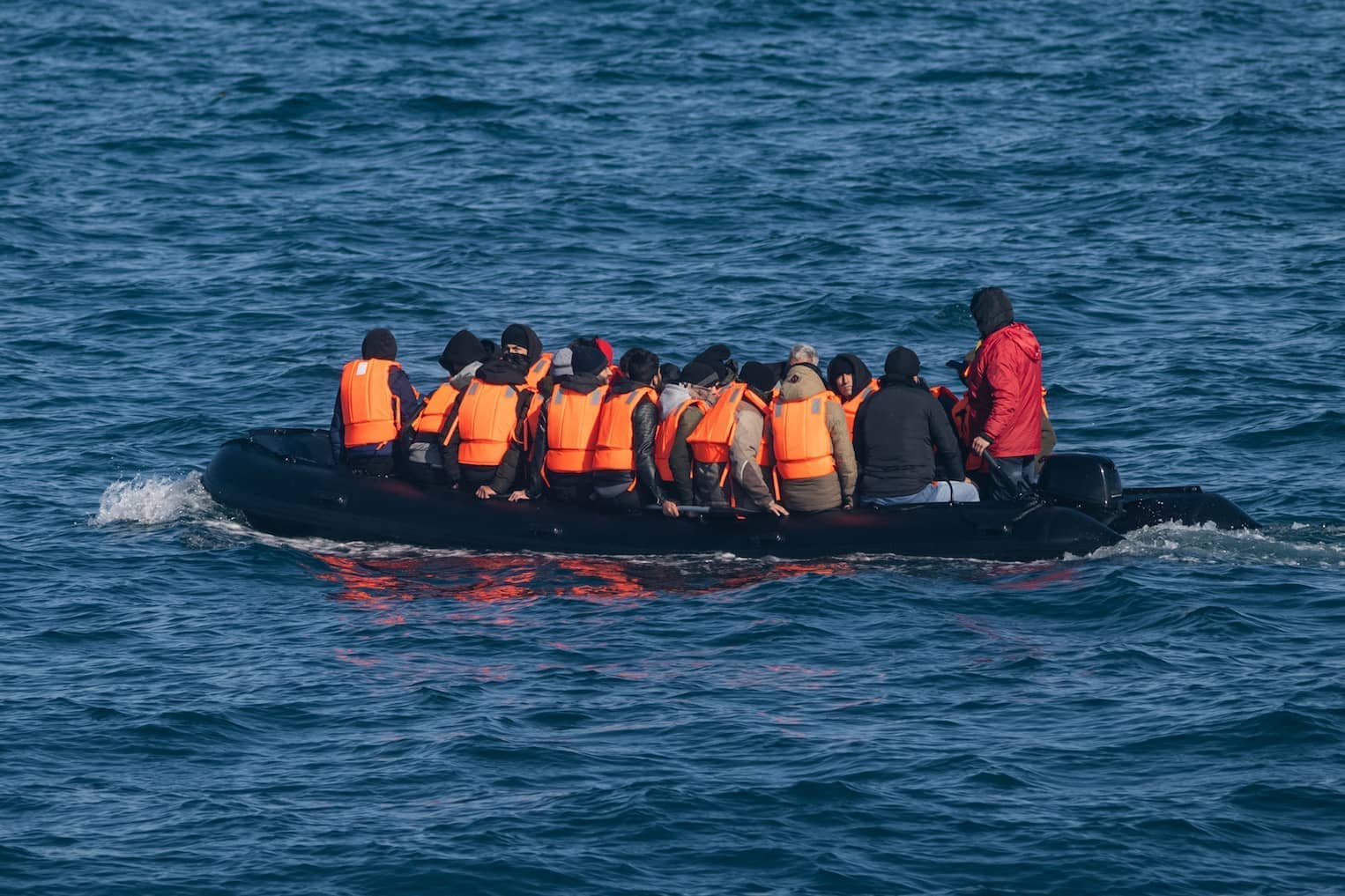If you want to see what explosive growth looks like then I invite you to eschew all the old Covid charts and instead make your own graph plotting the number of Channel-hopping migrants year on year. In 2018 there were 299, in 2019 there were 1,843, in 2020 there were 8,466 and in 2021 there were 28,527. So far in 2022 arrivals are running at easily more than twice last year’s month-by-month tally, meaning we are heading for 60,000+ by the end of the year.
Extrapolating the trend to the general election year of 2024 takes us into the ballpark of 250,000 – roughly equivalent to the entire population of Wolverhampton or Portsmouth. With 80 million displaced people in the world and billions more living in poor countries under unappetising regimes, nobody should think the supply of migrants will run dry anytime soon. This is the context in which we should view Boris Johnson’s new agreement to transfer an ‘uncapped’ number of cross-Channel arrivals to Rwanda for processing and resettlement.
Labour may well be right that the arrangement will flop at the implementation stage
In effect, the Prime Minister is proposing to drastically change the cost-benefit calculus for those travelling up through northern France with Britain in mind as their preferred destination. At the moment, long-term residence in the UK is almost guaranteed once the preliminaries of paying a people smuggler £3,000 and chugging across the Channel has been completed, so low have deportation figures tumbled.
But who will pay a big sum to a people smuggler if the likelihood is that he will end up in a central African country and with little prospect of living in the UK? Breaking the people-smuggling model and ending the pull factor drawing irregular migrants to the French coast is at the heart of the new Johnson plan to reform asylum.
The gnashing and wailing emanating from the migration progressives come as no surprise, leading him to demand of his political opponents today: ‘We have a plan. What is your alternative?’ He also, correctly, accused many opposition MPs of really supporting ‘open borders by the back door’ but of lacking the courage to be honest about it.
In what was one of his most impressive speeches as PM, Johnson sought to occupy the common ground on this thorny issue. On the one hand, he celebrated Britain’s historical track record of providing sanctuary. On the other, he set out the case that our capacity to sustain that is being imperilled by the growth of ‘a parallel, illegal system’ of queue-jumping.
‘Our compassion may be infinite, but our capacity to help people is not. The British people voted several times to control our borders – not to close them, but to control them. Around 600 came across the Channel yesterday. In just a few weeks this could again reach a thousand a day,’ he said – the latter point being underlined by the fact that even as he spoke, Sky News broadcast live pictures of another big boatload of migrants docking at Dover.
As Theresa May’s former pollster James Johnson, a frequent critic of the Prime Minister, admitted this morning, opinion research picks up time and again that getting a grip on the Channel hopping racket is viewed as a key priority by the working-class Red Wall voters who will decide the next election. All the signs are that Labour strategists are keenly aware of this too. It was noticeable that criticisms of Johnson’s deal with Rwanda from the Labour frontbench were made in technocratic, almost low-key language: ‘unworkable, unethical, extortionate’.
Compare that to the moral outrage expressed by refugee rights groups. The Refugee Council accused the PM of ‘choosing control and punishment above compassion’. Alone among the opposition parties, the SNP leadership said what it really thought. Ian Blackford called the plan ‘absolutely chilling’, while Nicola Sturgeon branded it ‘despicable… moral bankruptcy’.
Labour may well be right that the arrangement will flop at the implementation stage – after all, most Home Office-led initiatives do and Johnson himself admitted it would not be an instant ‘magic bullet’ and would probably need to be supported by further legislative changes. So pitching their opposition in terms of practicality rather than moral values is a canny tactic by Keir Starmer and his shadow cabinet.
But voters are not stupid. They understand that these days the British left simply prefers the notion of ‘global citizenship’ to the traditional one of a nation state duty-bound to put its own citizens first. Starmer’s strategists will not be able to keep the lid on his MPs and their fellow travellers who see forthcoming battles in this policy area as being about basic values and view those who disagree with them as venal.
A Tory government that sets about implementing the Rwandan arrangement with vigour and determination, living up to the Prime Minister’s claim today to be leading ‘a government that refuses to duck difficult decisions, that makes the big calls,’ will not lose to Labour at the next general election.








Comments